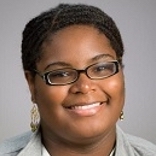Most Academic Conferences in Biology Do Not Have Codes of Conduct Governing Sexual Harassment
Posted on Jul 10, 2019 | Comments 0
 A new study led by Alicia J. Foxx, a doctoral student in plant biology and conservation at Northwestern University in Evanston, Illinois, found that the vast majority of academic conferences in the field of biology have not established official codes of conduct governing participants’ behavior while they attended these conferences.
A new study led by Alicia J. Foxx, a doctoral student in plant biology and conservation at Northwestern University in Evanston, Illinois, found that the vast majority of academic conferences in the field of biology have not established official codes of conduct governing participants’ behavior while they attended these conferences.
Because of the mix of power dynamics, social events and alcohol consumption, academic conferences have long been hot beds for sexual misconduct, according to the authors. All six authors of the study reported that they each experienced inappropriate sexual misconduct at biology conferences.
“There are stories about women being drugged at conferences,” Foxx said. “There are women who have had to barricade themselves in their hotel rooms to stay safe. One even had to jump out of a window. It is absolutely unbelievable that these things are happening.”
In examining nearly 200 conferences in the United States and Canada, researchers found that less than one quarter had developed a code of conduct for attendees. Of those conferences that did have a code of conduct, slightly more than half mentioned sexual harassment or sexual misconduct.
For those conferences that had a code of conduct:
- 83% mentioned identity-based discrimination
- 53% mentioned sexual misconduct
- 74% listed ways to report a violation
- 65% listed consequences for violators
“We didn’t find a single conference that hit all the marks,” Foxx said. “They all have room to improve.”
“Conferences tend to be a strange hot spot of misconduct because attendees are away from their home institutions in an informal setting,” said Foxx. “Codes of conduct are really important for guiding behaviors. It sets a standard for how everyone should act in certain situations.”
The study, “Evaluating Prevalence and Quality of Codes of Conduct,” was published in the Proceedings of the National Academy of Sciences. It may be accessed here.
Filed Under: Research/Study • Sexual Assault/Harassment • STEM Fields








